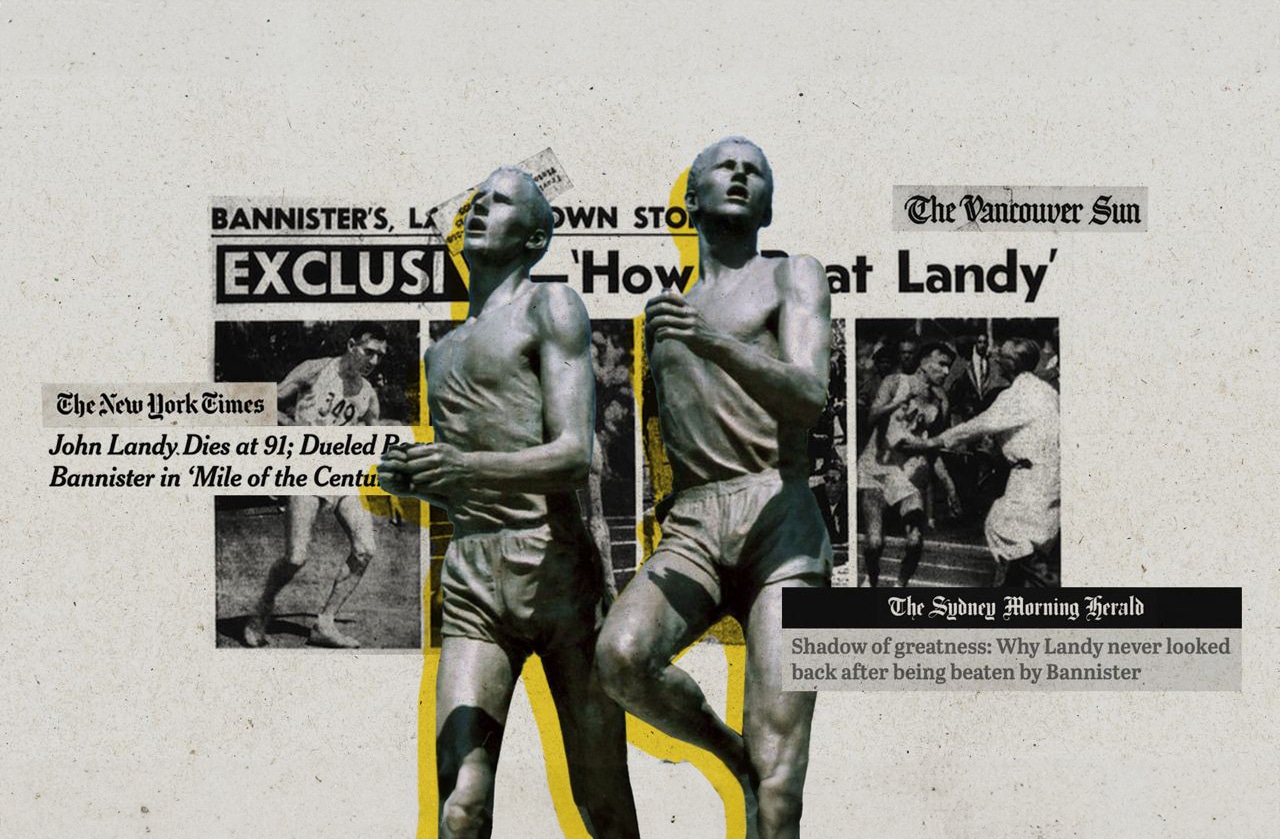Live by the rules – don’t be disqualified
Bishop Emeritus Robert M Solomon // April 9, 2018, 6:00 am

Photo by Thomas Wolter on Pexels.com
Every track and field athlete knows that in order to race, he or she has to follow the rules. Break the rules and you are out of the race.
The same principle applies in life’s most important journey.
Why is keeping the rules so important? And whose rules are we talking about?
Finding the rules for life
If this world has been created by a Creator, then the rules which He has built into the cosmos have to be followed.
In the natural world, we have few problems in understanding this. If you jump off a cliff, the law of gravity takes over and you will be in trouble. Of course, you could use a parachute but the fact that you do not fall to your death does not mean you have broken the natural laws that govern our universe. What has happened is that you have subjected yourself to two laws instead of one – the law of gravity and the law of aerodynamics.
If that is true in the natural realm, how about the realm that cannot be seen? Do we have other laws by which we are to function, laws that cannot be broken?
God as the Divine Designer has made us to function in a certain way. The Law is then the “operating manual”.
Moral laws are applicable to who we are, who we become and how we behave. They govern the way we are and function. Break them, and we break ourselves.
But are moral laws merely a social phenomenon?
Sigmund Freud claimed that the feelings of guilt that we have when we do something we perceive to be wrong is due to psychological malfunctioning. Others, such as Emile Durkheim, took a sociological explanation of human conscience and moral functioning, asserting that religion and moral frameworks are social creations, and nothing more.
The problem with these interpretations is that we seem to have a universal revulsion against some things such as murder. Such moral reactions must be more than psychological conditioning and socialisation processes.
We have, in each of us, a moral DNA that is part of us. We may deny its existence, ignore it, or be ignorant of it, but it is still there, just like the law of aerodynamics in the natural world.
The moral law: Prison of the past?
The Ten Commandments issued by God are a succinct summary of the moral law that is infused in us. Since it is God who has created us in His image, we carry within us a make-up designed to reflect God’s character.
Though we have fallen into sin, we still have an instinctive memory for God’s Law. Most people feel a prick of their conscience when they tell a lie or steal or are unfaithful to their spouse. Deep inside, a voice tells them that they are doing wrong.
When we break God’s moral law, we deface and vandalise God and His character.
God as the Divine Designer has made us to function in a certain way. The Law is then the “operating manual”.
When we ignore it or live contrary to it, we will suffer the consequences. We cannot break the Law without breaking ourselves. Whatever our age or period in history, station in life, or culture and nationality, it is true for all of us, for we all have been made by God.
The Ten Commandments also reveal the character of God. They speak of integrity, faithfulness, goodness and love.
When we look carefully, we will discover God’s character and be schooled in it. We discover that we have to display God’s character and values when relating with one another. There is no place for deceit, unfaithfulness, covetousness, violence and abuse.
When we break God’s moral law, we deface and vandalise God and His character. The Ten Commandments are not meant to be a relic from the past or an interesting exhibit in our Judeo-Christian museum. They have a continuing, significant part to play in the direction of our spiritual journeys and spiritual formation.
The Ten Commandments are meant to be obeyed.
Popular misconceptions about the Moral Law
There are two popular misconceptions about the moral law. One is that it has to do with negative prohibitions – don’t do this, don’t do that.
But that is a gross misconception.
Jesus, when He explained the moral law the way it is meant to be, clarified how the moral law is to operate in our lives. It not only has to do with our external visible behaviour, but also our internal motivation and thoughts. Therefore, while murder occurs when one man kills another in rage, just letting hatred take root in our hearts is tantamount to murder (Matthew 5:21-22).
Also, the moral law has to do not only with what is prohibited but also what is expected positively. Hence Jesus talked about loving our enemies.
“Love your enemies and pray for those who persecute you … Be perfect therefore as your heavenly Father is perfect.” Matthew 5:44, 48
The prohibitions are few in number and are designed to draw the boundaries for healthy human functioning. Within those lines, like the lines of a soccer field, the game of life can be played with creativity and energy.
Many people fail to realise that what appears to be restrictive boundaries are really the very means by which we find our true freedom from chaos, order and bondage.
The second popular misconception about the moral law is that people infuse it with a rigid and legalistic moralism. The heart of the moral law is love.
When asked to summarise the entire moral law, Jesus did so in terms of love when he said:
“Love the Lord your God with all your heart and with all your soul and with all your mind.’ This is the first and greatest commandment. And the second is like it: ‘Love your neighbour as yourself.’ All the Law and the Prophets hang on these two commandments” Matthew 22:37-40
The royal road to freedom and well-being
The moral law is the royal road to maturity and human well-being. Some people fail to understand that obeying the moral law is the only way to find true maturity for it brings us to the greatest reality of all – God’s love.
Such ideas may sound hopelessly outdated in an age of self-expression and self-fulfilment.
What appears to be restrictive boundaries are really the means by which we find freedom from chaos, order and bondage.
We live in a society that is increasingly operating on self-indulgence and self-referential gratification and entertainment, or autonomy (literally, self-law).
However, the failure of such ideas is seen in the broken lives of people and families all around us. We see the growing number of casualties who have damaged their lives by following these lies.
Obedience is not an outdated idea; it is the very essence of freedom, strange as it may sound.
Jesus, though He was divine, gave up His glory in heaven by emptying Himself and becoming a man, humbling Himself with an obedience that was willing to embrace the cross of suffering (Philippians 2:68).
In his unjust trial, Jesus stood tall, filled with courage and faith, because He had given Himself in obedience to His Father. He had prayed: “Not my will, but yours be done” Luke 22:42. Even as the falsely accused, He was the only true man with human dignity. The rest were slaves to their own rage, jealousies, fears and anxieties.
Jesus demonstrated that the obedient life is the one that is truly beautiful and ultimately free. That obedience is not to a set of man-made rules, or social convention, or rules we have imagined. That obedience is to Someone who is above, beyond, and mysteriously, in us. It is a relational thing, and that is why its heart is faithful love.
In running the race that really matters, you have to keep the rules. As Paul wrote:
“If anyone competes as an athlete, he does not receive the Victor’s crown unless he competes according to the rules.” 2 Timothy 2:5
Listen to the voice. Keep the rules. Remember that the rules are not only what is seen but more importantly, what is unseen. They have to do with who we really are and how we function deep within.
There is one more thing. You cannot keep the rules with your own ability or strength. We resonate with Paul who laments:
“So I find this law at work: When I want to do good, evil is right there with me. For in my inner being I delight in God’s law; but I see another law at work in the members of my body, waging war against the law of my mind and making me a prisoner of the law of sin at work within my members. What a wretched man I am! Who will rescue me from this body of death? Thanks be to God – through Jesus Christ our Lord!” Romans 7:21-25
There are propensities within us that steer us away from the race and out of line. But divine grace helps us and keeps us.
Often, we are like toddlers; we do not fully understand the rules and need to be guided to stay within the race so that we can complete it. At other times, we are like a visually-impaired runner who knows the rules but who is unable to keep them all without help from outside. God helps us in these ways.
The important thing is to get rid of our misconceptions about the rules. The more we keep the rules, the more we will understand them and the easier it will become.
Do not believe the lie that you can break the rules and still win the race.
You cannot.
This article is an excerpt from the book, The Race: Finding the Real Journey in Life (Singapore, Armour Publishing, 2008) and is republished with permission. The book is available for purchase here.
We are an independent, non-profit organisation that relies on the generosity of our readers, such as yourself, to continue serving the kingdom. Every dollar donated goes directly back into our editorial coverage.
Would you consider partnering with us in our kingdom work by supporting us financially, either as a one-off donation, or a recurring pledge?
Support Salt&Light




